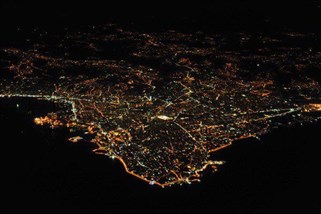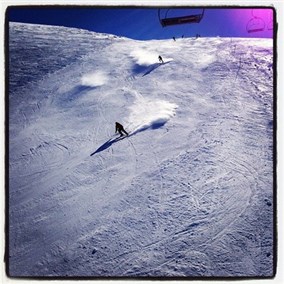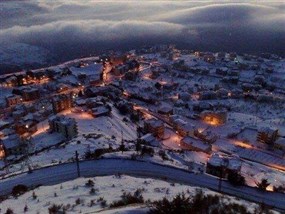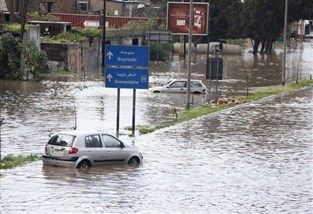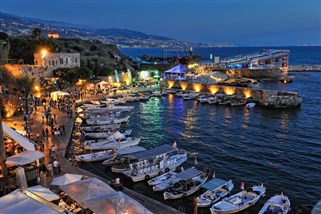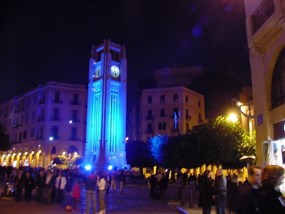PRACTICAL
INFO
INFO
back
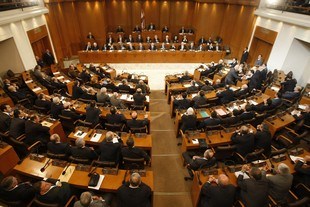




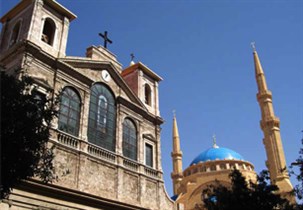


Government

Lebanon is democratic republic with a parliamentary system of government and a cabinet headed by a prime minister. Its constitution is based on the separation of executive, legislative, and judicial power, with a president elected for a six-year term. The 128 members of parliament are elected by universal adult suffrage for a four-year term.
Climate in Lebanon throughout the year

Lebanon has a Mediterranean climate - hot and dry in summer (June to August), cool and rainy in winter (December to February).In summer humidity is very high along the coast and daytime temperatures average 30°C, with night temperatures not much lower. Winter is mild, with daytime temperatures averaging 15°C. In the mountains, summer days are moderately hot (26°C on average) and the nights cool. Winters are cold, with snowfall above 1300m.Spring (March to May) and autumn (September to November), when the climate is warm but not uncomfortable, are the best times to travel in Lebanon. In winter, the rain and cloud can spoil sightseeing and snow can close
read more
Money and Costs in Lebanon

Lebanon's currency is the Lebanese lira (LL) (known locally as the Lebanese pound). There are a few coins (piastres) of LL50, 100 and (more commonly) 250 and 500 pieces still in circulation, as well as notes of 50, 100, 250, 500, 1000, 5000, 10, 000, 20, 000, 50, 000 and 100, 000.US dollars are accepted everywhere and are as good as interchangeable with the Lebanese lira. Often, smaller amounts are quoted in Lebanese lira, and larger amounts (with fewer 0s!) are quoted in US dollars (the etiquette also followed in this chapter). Many places give change in either currency.US dollars are widely accepted, but travellers cheques (in any currency) are not.
read more
Economy

The urban population in Lebanon is noted for its commercial enterprise.Over the course of time, emigration has yielded Lebanese "commercial networks" throughout the world.As a result, remittances from Lebanese abroad to family members within the country total $8.2 billion and account for one fifth of the country's economy.Lebanon has the largest proportion of skilled labor among Arab States.Although Lebanon is ideally suited for agricultural activities in terms of water availability and soil fertility, as it possesses the highest proportion of cultivable land in the Arabic speaking world,it does not have a large agricultural sector. Attracting only 12%
read more
Demographics

Identifying all Lebanese as ethnically Arab is a widely employed example of panethnicity since in reality, the Lebanese “are descended from many different peoples who have occupied, invaded, or settled this corner of the world,” making Lebanon, “a mosaic of closely interrelated cultures”.While at first glance, this ethnic, linguistic, religious and denominational diversity might seem to cause civil and political unrest, “for much of Lebanon’s history this multitudinous diversity of religious communities has coexisted with little conflict”.The population of Lebanon was estimated to be 4,125,247 in July 2010,however no official census has been taken sinc
read more
Religion
Lebanon's population is estimated to be 59.7% Muslim (27% Sunni; 27% Shia; 5.7% other (Shia, Sunni, Isma'ilite, Alawite, or Nusayri and non-Muslims with similar beliefs to the Muslim such as Druze, who do not consider themselves to be Muslims)), 39% Christian (Maronite, Greek Orthodox, Melkite Catholic, Armenian Orthodox, Syrian,Roman Catholic, Chaldean, Assyrian, Copt, Protestant), and 1.3% other.Breakdown of the religious groups in Lebanon, c. 2008Over the past 60 years, there has been a steady decline in the ratio of Christians to Muslims, due to higher emigration rates of Christians, and a higher birth rate in the Muslim population.The most recent
read more
Education

All Lebanese schools are required to follow a prescribed curriculum designed by the Ministry of Education. Some of the 1400 private schools offer IB programs,and may also add more courses to their curriculum with approval from the Ministry of Education. The main subjects taught are mathematics, sciences, Arabic, and at least one secondary language (either French or English).The government introduces a mild form of selectivity into the curriculum by giving 11th graders choice between two "concentrations": sciences, humanities, and 12th graders choose between four concentrations: life sciences, general sciences, sociology and economics, and humanities an
read more
Tourism

Between 2005 and 2007, Lebanon was in a state of political turmoil, resulting in a sharp fall in tourism. Over the course of 2008 Lebanon rebuilt its infrastructure mainly in the real estate and tourism sectors resulting in a comparatively robust post war economy. In 2009, the New York Times ranked Beirut the No. 1 travel destination worldwide due to its Unique Nightlife and Hospitality.In January 2010, the Ministry of Tourism announced that 1,851,081 tourists had visited Lebanon in 2009, a 39% increase from 2008.Overall, Lebanon has seen an annual increase in tourism since 2006.Recently, after the long years of the civil war and reoccurring periods of
read more
QUICK FACTS

Official name
Republic of Lebanon
Capital
Beirut
Country code
961
Language
Arabic
Area
10, 452 sq km
Population
4.4 million
Money
Lebanese lira (LL) US$1 = LL1502 €1 = LL1774
LEBANON
NIGHTLIFE
NIGHTLIFE
Lebanon Photos
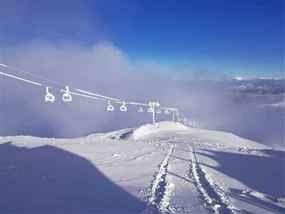
First Snowfall in Lebanon
24 Nov 2017
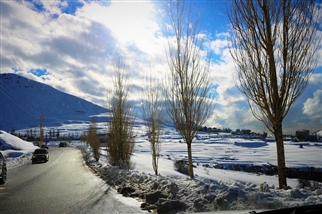
Lebanon covered by snow 2017
12 Jan 2017
-151029114153325.jpg)
Heavy Rain in Lebanon
29 Oct 2015
-150908103833282.jpg)
Sandstorm engulfs Lebanon
08 Sep 2015
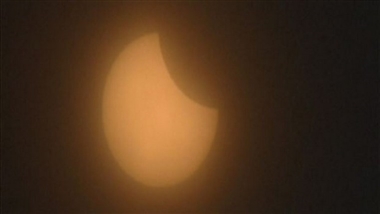
Solar Eclipse in Lebanon March 20
20 Mar 2015
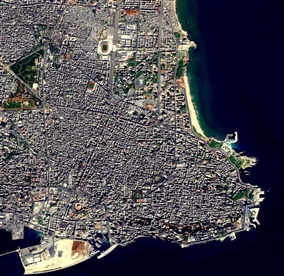
Beirut
19 Feb 2015
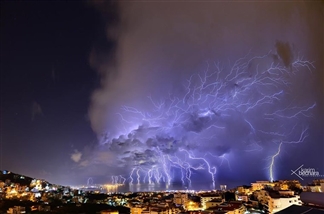
Lebanon Thunder Stock Photography
17 Oct 2014
-140410013152695.jpg)
Heavy Rain in Lebanon-April
10 Apr 2014
Snow in March 2014
13 Mar 2014

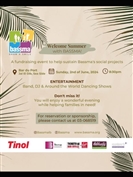


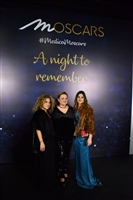
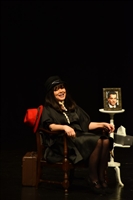
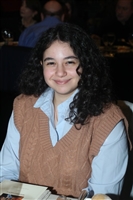
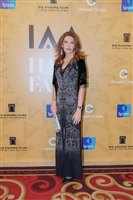
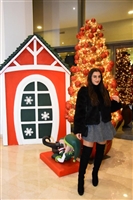
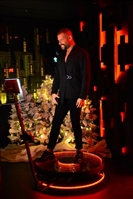
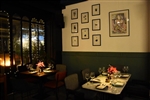
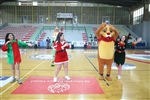
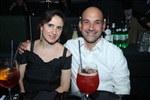
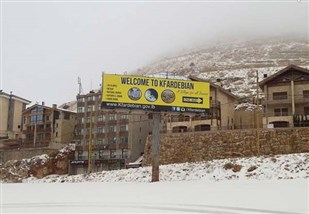
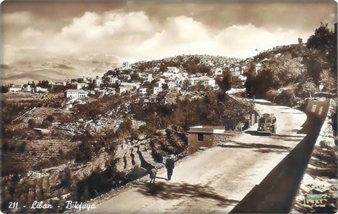
-131205120123197.jpg)
